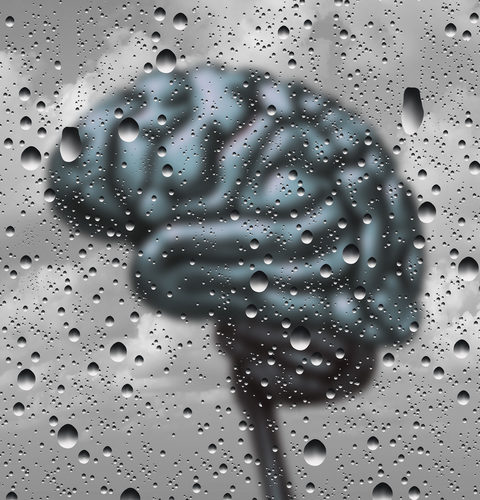Between 2005 and 2011, the number of adult emergency department visits due to nonmedical use of amphetamines and stimulants skyrocketed from 5,605 to 22,949. The data, collected by the Substance Abuse and Mental Health Services Administration (SAMHSA), included prescription amphetamines intended to treat attention deficit disorders and sleep disorders as well as over-the-counter caffeine products. Commonly abused substances in this category include Adderall, Ritalin, Concerta and highly-caffeinated energy drinks. These drugs can be taken orally, snorted or injected. According to the National Institute on Drug Abuse, approximately one million people abuse stimulants like these every year, likely due to relatively easy access and low cost.
EFFECTS OF STIMULANT ABUSE ON THE BRAIN AND BODY
Pharmaceutical stimulants are designed to increase attentiveness, alertness and motivation. They boost activity in initiative and rewards pathways of the brain, which has the effect of making you feel more awake, more active and more optimistic. Taken recreationally, stimulants like these can seem like an easy way to concentrate on work or give you energy without sufficient sleep.
As with abuse of any mind-altering substance, however, there is a negative side to the mood-boosting effects. Using drugs to stay awake or concentrate can result in unhealthy sleep deprivation. Stimulants have also been connected with decreased appetite and drastic weight loss. Additionally, the increase in brain activity leads to physical reactions throughout the body, including high blood pressure and an often dangerously high heart rate.
In the long run, continuous recreational use causes the affected pathways in your brain to become reliant on drugs to function at a normal level — this is called dependence, which is a key component of drug addiction. Without regular access to a stimulant, you may begin to exhibit signs of withdrawal, including:
- Chronic headaches
- Insomnia
- Heart palpitations
- Exhaustion
- Anxiety or depression


TREATING ADDICTION TO AMPHETAMINES AND OTHER STIMULANTS
The physical symptoms of amphetamine and stimulant withdrawal can be dangerous when they are not properly monitored. The damage that long-term stimulant use can do to your heart, blood vessels and other organs often requires medical attention as your body recovers from dependence and addiction. In some cases, it is necessary to be weaned off the drug using controlled doses and supplementary stabilizers. Finding a recovery facility that, like Springboard, is equipped to assist with medical detox situations like this is important to make sure you can regain your physical health.
After your body has recovered, you can embark on your journey to maintaining your sobriety. The programs at The Springboard Center in Midland, TX are designed to help you transition back into your daily life without a reliance on amphetamines and stimulants. We focus on treating our clients with respect and dignity, approaching your addiction with an understanding that everyone’s experience with substance abuse is different and requires an individual plan. We offer programs to fit your needs, health and schedule, including:
- Medically-assisted detox
- Residential treatment
- Intensive outpatient treatment
- Group and individual therapy
Through our programs, you will address the underlying cause of your addiction through therapy and replace unhealthy habits with constructive hobbies. Particularly with addiction to amphetamines and stimulants, regaining your health and self-confidence with these treatments can help you discover that you do not need to rely on substances to succeed at school, in your workplace or in your social circles.
CONTACT THE SPRINGBOARD CENTER
Springboard is proud to be the premier addiction treatment center for the Permian Basin region of Texas, New Mexico and Oklahoma. We treat men and women over the age of 18 for addiction to drugs and alcohol, and we can offer medically-assisted detox at our facility and in partnership with local healthcare centers. If you or your loved one is struggling with addiction, contact us to find out if our programs are right for you. Call us today at our office in Midland, TX 432-620-0255 to learn more about the resources available to you during your recovery.

